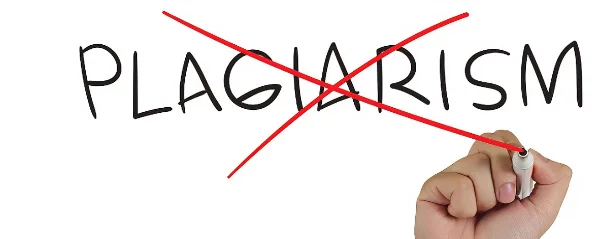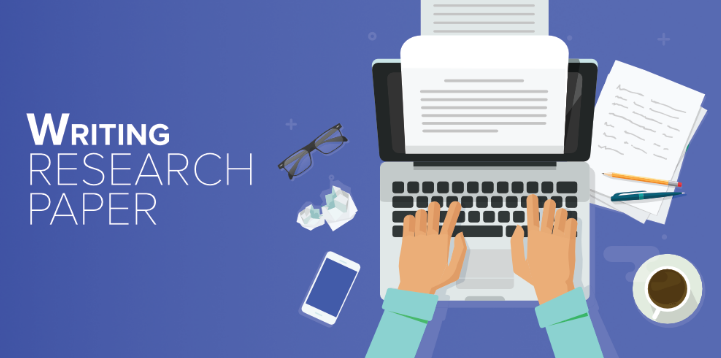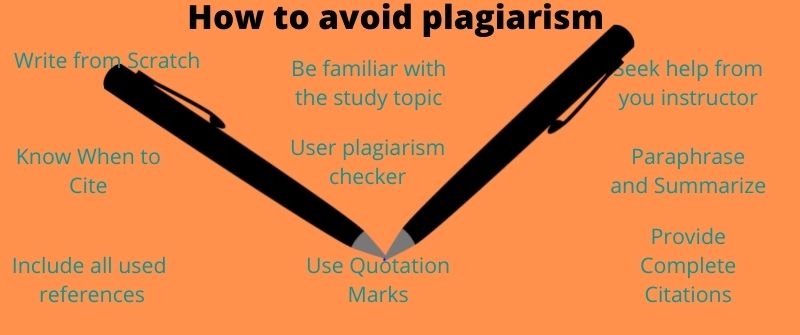Students must write a research paper at one point, regardless of their field of study or academic level. However, writing a research paper is challenging.
Therefore, many students choose to take shortcuts such as copying from the internet or submitting old research papers that they did before.
Such shortcuts are considered plagiarism which is a serious academic offense. If discovered plagiarism may result in serious punishments such as expulsion or failing the entire exam.
Learning how to write a research paper without plagiarism is important in both academic and professional life. In this post, we will discuss several ways to avoid plagiarism.
How to Write a Research Paper Without Citing Everything
1. Write From Scratch
One of the main ways to avoid plagiarism or citing everything is to write your research paper from scratches. This means that you will personally write your paper from start to finish.

For instance, say your professors have asked you to write a research paper on climatic changes.
You will go through all the processes of research writing.
You will brainstorm ideas, conduct research, create an outline, draft your paper, and then revise and proofread it until you have a complete final copy to hand in.
It, therefore, means you will not cite everything or plagiarize since it is your original work.
Ie you do not have to give any publication credit.
This method not only helps you avoid plagiarism but also allows you to tailor your paper to meet the specific requirements of the task. Apart from that, writing from scratch helps you broaden your knowledge base on a certain topic.
Read a complete guide on how to write a research paper from scratch to know the steps needed to do this.
2. Know When to Cite and When Not
When writing a research paper such as a dissertation, it’s essential to know that not all sources must be cited. If you attribute every detail to a source, your paper will be clogged with citations. So the question is, which information requires citation and which does not?
As a general rule, facts that are well-known do not require citations, while more specific information does. Some of the questions you should ask yourself about the information you want to write include;
- Do most people believe a statement to be accurate?
- Is the average person aware of it?
If you answer yes to these questions, then such information does not require citation.
For example, it is not necessary to cite a source on a statement like climatic change is a global issue since most people know it to be true.
On the contrary, a statement like, In contrast, stating something like the average rainfall is expected to rise by 500ml in the next two years requires you to cite the source of information.
If in doubt, cite the source – it is better to include sources even when you are unsure whether to do so rather than not include them when you are supposed to.
When it comes to research papers, most professors forgive papers with too many sources cited more than they do papers without any citations.
How to Copy a Research Paper Without Plagiarizing
If you are not an expert in writing from scratch, consider the following ideas to help you avoid plagiarism. With the tips below, you can copy a paper from Course Hero or Chegg without plagiarism.

1. Use your own Words
Always use your own words to convey the main points. Here you need to use vocabulary to paraphrase other authors’ ideas while maintaining the same meaning.
There are many online paraphrasing tools designed to prevent plagiarism. You can choose one of them to help you change the original text while preserving its original meaning.
However, you should thoroughly analyze the final text of these tools to present the information in a way that no one will be able to tell which text was used.
2. User Plagiarism Checker Tools
Use plagiarism detection tools to ensure that your work is original. There are many plagiarism checking tools online and it is easy to detect plagiarism using them. Plagiarism checkers highlight texts or paragraphs that need improvement.
3. Use Quotation Marks
Make sure to use quotation marks in sentences that you can’t avoid. There are no negative consequences of using ideas from other works in this way.
However, you should familiarize yourself with citation rules to ensure that you do so correctly. This is a good way to copy-paste without plagiarism because it gives the source as it is and one introduces it as a quotation.
4. Familiarize Yourself With the Topic of Study
Before you begin writing, conduct extensive research on the topic of the research paper. Check all unfamiliar words and phrases to ensure that the research of another author is used in the correct context.
This way you will be able to write a meaningful paper without any plagiarism. This is the main aspect of researching and getting ideas. Familiarizing is the other way of getting inspiration without copying by capturing the ideas.
5. Include All Used References
It’s important to keep track of all the information sources you’ve used when writing a paper to avoid plagiarizing your work.
It is expected that you cite a specific publication whenever you use other writers’ ideas. If you want your professor to know that you didn’t intend to steal anyone’s ideas, provide a list of the works cited.
How to Write a Research Paper Without Paraphrasing
Summarize
Summarizing is an effective way to prevent plagiarism and avoid paraphrasing. Most students often use paraphrasing and summarising interchangeably, but they refer to different methods of conveying information from sources.

Paraphrase means restating something in your own words.
It should involve extensive rewriting rather than changing a few words here and there.
The key here is changing the wording without losing the meaning of the text.
Summarizing, on the other hand, requires you to focus on the most important parts while restating something.
You paraphrase when communicating information from a paragraph or a few sentences, while you summarize when you want to convey key points from a very large text or the entire article.
It is possible to avoid plagiarism and paraphrasing by summarizing your source when writing research. The point is to keep your research papers and your source similarity index low if you want to avoid plagiarism.
Summarizing is also effective when you can’t use direct quotes. For example, it’s not practical to quote an entire page and this is where you need to summarize.
Note that it is always advisable to accompany paraphrased or summarized text with a reference.
How to Write a Research Paper Without Copying
Despite warnings and sanctions, many students continue to copy, both intentionally and unintentionally. Therefore to avoid copying consider the following.
Use Plagiarism Checker
Plagiarism checkers are online programs that can detect plagiarism. Today, many schools have plagiarism-checking software available for students to use.

You are unlikely to find any similarities between your paper and the work of others if you write it from scratch and use appropriate citation methods.
You should utilize premium plagiarism checks if they are available to you.
This software can be a helpful tool in ensuring that your paper is not copied anywhere. Note that there are also free plagiarism tools available on the internet.
For instance, you can use Turnitin or SafeAssign. Doing such checks helps you know the SafeAssign percentage and know how to adjust your work.
Avoid Buying Papers Online
An online research paper purchase can be a very risky business. There are a lot of websites that have thousands of research papers for sale.
Buying a research paper not only violates academic integrity but can also be risky if discovered.
It is also possible to buy the same paper with your coursemate without knowing. After all, websites only need the money. The only safe way to do this is to hire a private writer or tutor to help your research paper completely from scratch.
Ask your Professor for Help
Lastly, asking your professor for advice can help you to avoid copying. In addition to instructing students, professors also guide in other areas, such as writing research papers.
The majority of the time, professors are happy to give students advice on how to avoid plagiarism. Be careful, however, not to monopolize the professor’s time.

Joseph is a freelance journalist and a part-time writer with a particular interest in the gig economy. He writes about schooling, college life, and changing trends in education. When not writing, Joseph is hiking or playing chess.
